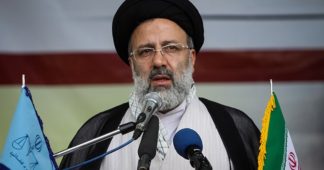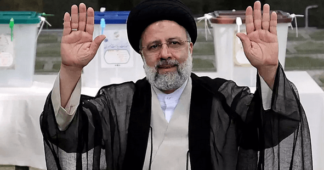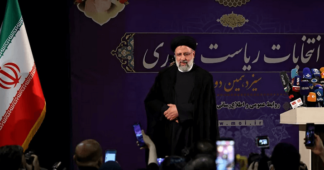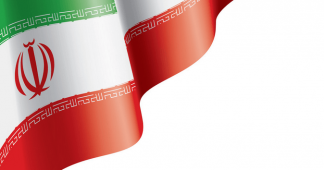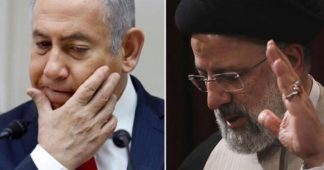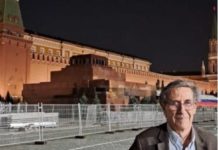Iran’s President Ebrahim Raisi, who died in a helicopter crash, sought to unite the Global South against Western imperialism, joined BRICS, advocated dedollarization, and strongly supported Palestine.
By Ben Norton
May 21, 2024
Iran’s President Ebrahim Raisi, who died in a helicopter crash on May 19, left behind a legacy of working to build a more multipolar world.
Under Raisi, Iran joined BRICS and the Shanghai Cooperation Organization, Global South-led institutions that he noted could challenge US unilateralism and hegemony.
The late Iranian leader advocated a “Look East” strategy, strengthening relations with China, Russia, and other countries in Asia.
Raisi represented a more nationalist wing of the political class in Tehran, which sees the futility of trying to win Western approval, and instead recognizes that Iran’s political and economic future lies in deepening integration with the Global South.
“We will not … tie the country’s economy and people’s lives to [the West’s] will”, Raisi declared.
Accordingly, he pursued closer ties with Latin America and Africa, emphasizing the common struggle against Western imperialism.
In 2023, Raisi visited Cuba, Venezuela, and Nicaragua. Despite his political differences, he showed solidarity with the socialist governments of these Latin American nations – which, like Iran, suffer from illegal unilateral sanctions imposed by the United States.
In La Habana, Raisi stated, “One of the serious commonalities between the two countries is standing against the voracity of the colonial system. Cuba has been standing against American hegemony and voracity for many years, and this resistance of the Cuban people and government is commendable”.
Iran’s Foreign Ministry wrote in its diplomatic readout that, when he was in Caracas, “Ayatollah Seyyed Ebrahim Raisi praised the years of resistance of the Venezuelan people against imperialism”
In Managua, Raisi declared, “America wanted to stop our nation with sanctions and threats, but our nation not only did not stop, but instead, it used the threats and sanctions to build and progress”.
“We are certain that Nicaragua too can overcome the US’s threats and sanctions since today the US is in decline and is growing weaker day by day”, the late Iranian leader told President Daniel Ortega.
While meeting with the foreign minister of Burkina Faso’s revolutionary government, Raisi “praised the standing and resistance of African countries against colonialism and terrorism, describing it a sign of awakening”.
“Africa is the main driver of the development of the Global South”, Raisi said at the BRICS summit in August 2023. “Fortunately, the political and economic weight of Africa, which is an inseparable part of the developing world, is growing constantly”.
The late Iranian leader likewise was a vocal advocate for de-dollarization, promoting the use of local currencies in bilateral trade, to bolster economic sovereignty and undermine the dominance of the US dollar.
“The hegemony of the Western world contributes to the hegemony of the dollar”, Raisi said in a meeting of the Shanghai Cooperation Organization. “In order to create a new economic order, it is necessary to remove this instrument of hegemony in world practice, to use national currencies in settlements between countries”.
In a visit to Jakarta in 2023, Raisi signed an agreement for Iran and Indonesia to de-dollarize and use their own currencies in bilateral trade.
While accepting Tehran’s invitation to join BRICS, the late leader stated, “The Islamic Republic of Iran decisively supports the successful efforts of BRICS in the direction of de-dollarization of economic relations between members, as well as the use of national currencies and the strengthening of BRICS mechanisms for payment and financial settlement”.
Speaking before BRICS, he also emphasized that “one of the challenges in the ‘Southern World’ is the continuation of racist policies, insecurities arising from oppression, occupation, hegemony and state terrorism, especially from the Zionist regime; which not only prevented the Palestinian people from exercising their right to self-determination, but also deprived them of the right to development”.
Above all, Raisi demonstrated Tehran’s unflinching support for the Palestinian national-liberation struggle against Israeli colonialism.
In December, Raisi organized a global conference to support Palestine, which was attended by representatives from more than 50 countries.
At the international meeting, the late Iranian leader condemned the United States as the “first and biggest violator of democracy in the world”. He recognized that Israel’s genocidal war on Gaza was only possible because of the substantial support it receives from the US empire, which he condemned as a “global hegemonic system” based on imperial oppression.
We remind our readers that publication of articles on our site does not mean that we agree with what is written. Our policy is to publish anything which we consider of interest, so as to assist our readers in forming their opinions. Sometimes we even publish articles with which we totally disagree, since we believe it is important for our readers to be informed on as wide a spectrum of views as possible.
